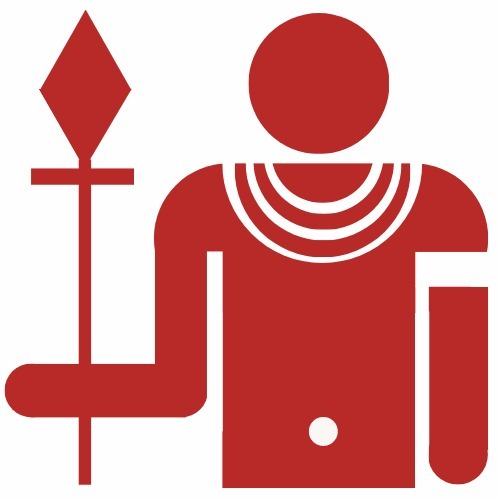Following a growing demand for mobile phone payment services in Africa, Vodacom had just redesigned M-pesa for the South African Market. The culmination of this redesign is the launch of a totally revamped service which addresses four key areas including distribution, registration, functionality, and loyalty.
First launched in Kenya in 2007, m-pesa is now used by more than 18 million people across 13 countries to perform banking and money transfer services via mobile phone. Vodacom introduced m-pesa to South Africa in 2010 and while the initial take up was strong with more than one million people signing up, it hasn’t so far enjoyed the overwhelming uptake seen in markets like Kenya and Tanzania.
Over the past two years Vodacom has assembled a new m-pesa team, bringing in external expertise in banking and mobile payments, and also studied the factors which have held the service back in South Africa and those that made it a success elsewhere.
Speaking about the history of m-pesa in South Africa, Vodacom Group CEO Shameel Joosub said:
“When we first launched m-pesa in 2010 we had high hopes that it would have the same kind of transformational impact seen in Kenya. We wanted to change the way South Africans handle money for the better. Each country has its own unique needs and challenges, and it has been a learning process getting to understand exactly what will and what won’t work in South Africa. We’ve taken the experience and knowledge gained from the past four years and have used this as the basis for a comprehensive redesign of m-pesa for the South African market.”
More than half of the customer base of Vodacom Tanzania is registered for m-pesa, and this group accounts for more than US$1 billion in activity per month. In Kenya, over 70 per cent of the adult population uses m-pesa. In order to achieve the same level of participation in South Africa, the first thing that the team focused on is distribution. Joosub said: “It’s not good enough to have an agent at the nearest big town or at a handful of big retail outlets. Kenya and Tanzania taught us that if you need to take a taxi to use the service, it will fail. Instead, you need to have agents where people live and work.”
Vodacom’s revamped m-pesa service launches with more than 8,000 agents at both informal outlets and at major retail partners. This is approximately ten times the number that m-pesa originally launched with in 2010, and the intention is to grow, particularly in the informal sector, to around 30,000 points of presence by the end of the year. This will guarantee a lead in distribution by putting the nearest m-pesa agent within hundreds of meters of customers, and has the potential to generate additional employment. Vodacom has even gone as far as launching a mobile-based locator to direct customers to the nearest m-pesa outlet.
After tackling distribution, the second thing that the m-pesa team did was to address the issue of ease of registration. In Kenya and Tanzania, any m-pesa agent can register a customer – all it takes is a mobile phone and an ID document. For the original launch of m-pesa in South Africa, a potential customer had to present their ID in person at a limited number of outlets.
With the revised m-pesa, customers can self-register via mobile phone simply by entering their name and ID number. If a customer would like to enhance the functionality and transaction limits of their m-pesa account, then all they need to do is take their ID and register in person at one of the roughly 1,000 FICA sites set up countrywide. These include Vodacom shops, spaza shops and specialized FICA hubs at key points like cash ‘n carry outlets. Joosub said:
“While distribution and registration are key enabling factors, the heart of the revised m-pesa is the functionality. We’re excited to be working with two key new partners, Bidvest Bank and Visa, whose skills and expertise have allowed us to add entirely new functionality to m-pesa that addresses the specific needs of the South African market.”
The revised m-pesa service introduces a number of entirely new elements including a chip and pin protected Visa card, and a voucher system to upload cash. The new m-pesa Visa card gives access to approximately 27,000 ATMs and over 240,000 merchant outlets in South Africa, dramatically increasing the versatility of the service.
Another key innovation is the introduction of a voucher system which allows people to convert cash to m-pesa at all Vodacom shops, selected spaza shops, and at selected retailers. The process is similar to buying airtime and makes topping up the m-pesa wallet quick and convenient. On top of this, traditional services like person to person transfers have been optimised. Additional functionality is planned for the near future. In short, this is true mobile banking that has something to offer for all income groups across South Africa.
Japie van Niekerk, Managing Director of Bidvest Bank, commented: “We are delighted to be selected as the banking partner for Vodacom’s mobile banking service. Vodacom sets high performance standards and we regard our selection as an endorsement of the system reliability at Bidvest Bank and the professionalism of our people.
“A key element of our growth strategy is our policy of forming relationships with leaders in South Africa and across international markets. Vodacom is an African mobile communications leader with huge credibility. We’re delighted to work in partnership with a top performer of such stature.”
On top of distribution, registration, and functionality, the last key change with the revised m-pesa has been to more effectively leverage Vodacom’s mobile services to drive usage and loyalty. Usage will now be directly linked to rewards in the form of airtime and other offers, giving a clear incentive to the more than 30 million customers currently using Vodacom’s mobile services in South Africa to begin using m-pesa.
The initial rewards for using this product include a doubling of airtime when purchasing airtime via m-pesa, and free airtime for activating the m-pesa Visa card.
Summing up, Joosub said:”m-pesa has the potential to transform how South Africans manage money. We’ve worked hard to learn from our experience with the service so far, and have come back with something that we think is truly compelling. We’re looking forward to the day that South Africa is held up as yet another example of where m-pesa has changed the face of banking, unlocking the power of mobile technology to make people’s lives easier.”


